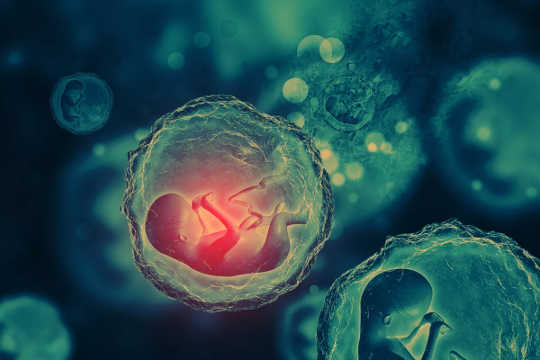
Bioethicist Matthew Liao is open to genetic engineering in theory, but he says he was rather horrified to learn that twin girls had been born in China after a researcher genetically modified their embryos to resist HIV infection.
“My first reaction was, ‘This is really bad,'” recalls Liao, a professor of bioethics, a moral philosopher, and the director of the College of Global Public Health’s Center for Bioethics at New York University.
First, Liao says, the scientist violated various ethical protocols—including basic principles such as transparency in research and international standards developed at the 2015 International Summit on Human Gene Editing.
Second, he used a gene-editing procedure—known as CRISPR-cas9—that has not been proven safe.
And, third, the intervention was not medically necessary. Because of advances in treatment, people living with HIV are able to live full and productive lives, and the sperm of HIV-infected men can be “washed” to remove the HIV virus (a technique that was used with the girls’ father).
Still, under the right circumstances, Liao, who served for two years on the Hinxton Group, which facilitates collaboration on stem cell research, believes genetic engineering can be used in an ethical way. And, in a paper in Bioethics, he puts forth a human rights-based approach to assessing which circumstances are right.
Establishing rules of the road
The paper builds on Liao’s previous writings, including his book The Right to Be Loved (Oxford Press, 2015), in which he makes the case that children, as human beings, have the right to certain “fundamental conditions” necessary to pursue a good life (love is one such condition, according to Liao; so are food, water, and air).
In the paper, Liao applies the same approach to gene editing and argues that part of the fundamental conditions necessary to have a good life are so-called “fundamental capacities,” which might include but are not limited to: the capacity to act, to move, to reproduce, to think, to be motivated, to have emotions, to interact with others and the environment, and to be moral.
“The basic idea is that if we think about what human beings need in order to pursue a good life, maybe from there we can generate some principles that can guide us in reproductive genetic engineering,” he says.
Liao introduces those principles with four “claims” on the ethics of genetic engineering:
- Claim 1: it is not permissible to deliberately create an offspring that will not have all the fundamental capacities;
- Claim 2: if such an offspring has already been created, it is permissible to bring that offspring to term;
- Claim 3: it is not permissible to eliminate some fundamental capacity from an existing offspring; and
- Claim 4: if it is possible to correct some lack of fundamental capacity—without undue burdens on parents or society—it may be impermissible not to do so.
Not surprisingly, Liao’s claims have generated much debate and controversy, especially the notion of a “fundamental capacity” and its underlying premise—that embryos are humans who have rights, which is a premise that some—though not Liao—have used as the basis for criminal prosecution of pregnant women seeking an abortion. (Liao says he supports abortion rights and cites “A Defense of Abortion,” a 1971 article by Judith Jarvis Thomson, for the idea that one being’s rights do not override another’s right to bodily integrity).
Provocative ideas
One of Liao’s most popular papers proposes that humans could genetically engineer themselves to collectively reduce our species’ carbon footprint, one of many ideas Liao puts forward in the paper.
The essential caveat to the 2012 paper is that Liao does not endorse any of these hypotheticals. The ideas, he says, are meant to provoke new conversations on an urgent topic.
The piece offers ideas such as stimulating an aversion to red meat (thereby reducing greenhouse gasses from livestock farming); making people physically smaller (and thus likely to consume less food); lowering birth rates through cognitive enhancement (based on the idea that birth rates are negatively correlated with access to education for women); and enhancing our altruistic and empathetic responses in the hopes that, if people are more aware of the suffering climate change causes, they will be more likely to take positive steps.
‘Right to be concerned’
Ultimately, Liao observes that there are some who uniformly oppose gene editing of any kind, and who worry about the unintended consequences that may result.
“They’re right to be concerned,” he says.
But in a world where such technology exists, he asks, “do we want a society where we say, ‘Nobody can have it’?”
Source: New York University
Related Books
at InnerSelf Market and Amazon
























